There is much to chew on in this article I came across just recently from a Washington Post column from 2016 . I agree with much of it and disagree with some of the author's conclusions.
I agree fully with Strauss that technology can "perpetuate, traditional teacher-centered instruction that consists mostly of memorizing facts and practicing skills.” A textbook on an iPad, looking up facts online, or playing Kahoot to reinforce recall are, "examples of how technology may make the process a bit more efficient or less dreary but does nothing to challenge the outdated pedagogy. To the contrary: These are shiny things that distract us from rethinking our approach to learning and reassure us that we’re already being innovative."
Yet, I disagree with her when she writes, "Perhaps it hasn’t escaped your notice that ed tech is passionately embraced by very traditional schools: Their institutional pulse quickens over whatever is cutting-edge: instruction that’s blended, flipped, digitally personalized. This apparent paradox should give us pause. Despite corporate-style declarations about the benefits of “innovation” and “disruption,” new forms of technology in the classroom mesh quite comfortably with an old-school model of teaching that consists of pouring a bunch o’ facts into empty receptacles."
I agree with half of this. I really don't see many traditional schools passionately embracing flipped and blended learning. Strauss has a wider scope than I do; but my reading and knowledge of schools suggests the opposite to me.
She is right that many technology tools mesh quite comfortably with old-school methods of teaching. As I’ve written before, it really depends on how we use technology. Seymour Papert (before he passed), Will Richardson and other early advocates of tech ed in schools now openly worry about what tech ed is becoming- a corporate reinforcer of the status quo. Indeed by the year 2000, Papert was already growing worried by the dismantling of his revolution and the idea averse ed tech establishment. Corporations sell schools what schools want to buy- tech that reinforces the dominant paradigm.
My final thought is more of an aside, Strauss bemoans open gradebooks. Grades get in the way of learning. I truly believe that. They discourage risk-taking and encourage conformity. Yet, I disagree with her thought that open gradebooks only serve to increase the deleterious and pernicious effects of current grading practices. The damage is already done. Besides, we can't simultaneously tell kids grades don't matter and to ignore them while grading them. It is unfair to students to keep them guessing.
It's a great column. Give it a read.
The more I teach, the more I realize how much I don't know. This blog explores pedagogy and ed-tech.
Thursday, July 27, 2017
Wednesday, July 19, 2017
Inertia
I'm taking a terrific course from the Change.School folks. I'm learning some things and relearning other things. It is increasingly clear to me the power of inertia. It is hard to shake up the status quo- even if a majority of folks say they want to. Look at the Republicans in Congress right now. It was so easy to vote 62 times to repeal the ACA when they knew President Obama would veto the repeal. But when things get real.... Look, school change and the ACA aren't the same thing and I won't go out of my way to conflate them further beyond saying that powerful forces get in the way of change. (In hindsight, Obama's effort to get the ACA is more impressive than it was seen at the time- whether or not you think it good policy, it was impressive politics.) In the case of school, I also think simple weariness gets in the way. Teaching and administrative jobs can be so all consuming. Time to think long-term in the midst of the year needs to be intentionally carved out, and often it isn't.
When plans are made in the summer, often they aren't realized once school starts in the Fall because we revert to old patterns. The patterns of school are deeply ingrained throughout the entire education establishment and infrastructure.
Change agents must be clear in messaging and consistent in promoting change. Otherwise, reversion to the status quo is almost inevitable. That's why schools have largely stayed the same despite decades of "reform".
When plans are made in the summer, often they aren't realized once school starts in the Fall because we revert to old patterns. The patterns of school are deeply ingrained throughout the entire education establishment and infrastructure.
Change agents must be clear in messaging and consistent in promoting change. Otherwise, reversion to the status quo is almost inevitable. That's why schools have largely stayed the same despite decades of "reform".
Monday, July 3, 2017
If we started with a totally blank slate, what would schools look like?
As Russell Ackoff says: “If you don’t know what you would do if you could do whatever you wanted, then how on earth can you know what you would do under constraints?”
The Tom Carroll essay “If We Didn’t Have the Schools We Have Today, Would We Create the Schools We Have Today? helps me frame my thinking. As the US sits in the middle of a healthcare debate, and substituting schools for healthcare, the obvious answer is “No!” I think it is safe to say the same is true for schools.
Carroll points out that an 1880s surgeon walking into a an operating room today would be almost totally lost whereas an 1880s teacher might be perfectly capable of leading a 2017 classroom. The surgeon likely wouldn’t understand the procedure or instruments. Not so for the teacher. Yet, I do not think change is inevitable. The current model is remarkably resistant to change.
So, how do we get there if change is not inevitable? Culture matters. Leadership matters and yet a larger societal change also needs to happen.
ExDee Hock, first CEO of Visa and author of Birth of the Chaordic (chaotic and orderly) Age asks this powerful question of all of us: “And what if those with the greatest power, wealth, and position were to open their minds to new possibilities, loosen their tenacious grasp on the old order of things, abandon the palliative of cosmetic change, open their eyes to new forms of organization, seriously question their internal model of reality?”
What modes of realities to I struggle to let go of? I have to be less cynical with the Luddites and skeptics among us. I then might be better able to help guide change.
This Grant Lichtman video tells us rather ominously that schools such as mine shouldn’t be thinking in 5 year windows for long-term planning. Instead we should be worried if we will be around 20 years from now. Lichtman says change IS coming. The question is, will we prepare for it? Or will we be shuttered shut?
Subscribe to:
Comments (Atom)
Featured Post
Prezi Video
Remember Prezi? Once upon a time it was all rage for students. I see very few students use this tool any longer. Prezi is back, though, wit...
-
Hmm.... It has quickly become conventional wisdom that social media and technology use in teens has led to an increase in anxiety and de...
-
One of my students made this poster for a proganda and protestantism mini-unit. This young man's poster is a Counter-Reformation respon...
-
We've all seen short videos accompanying articles on the web that combine images, text. I've run a across a free tool called Lumen5...


